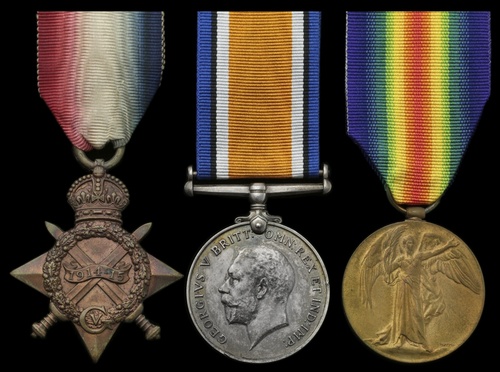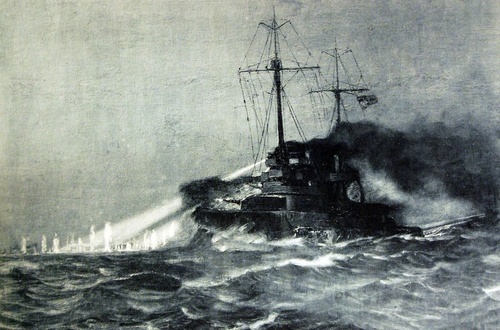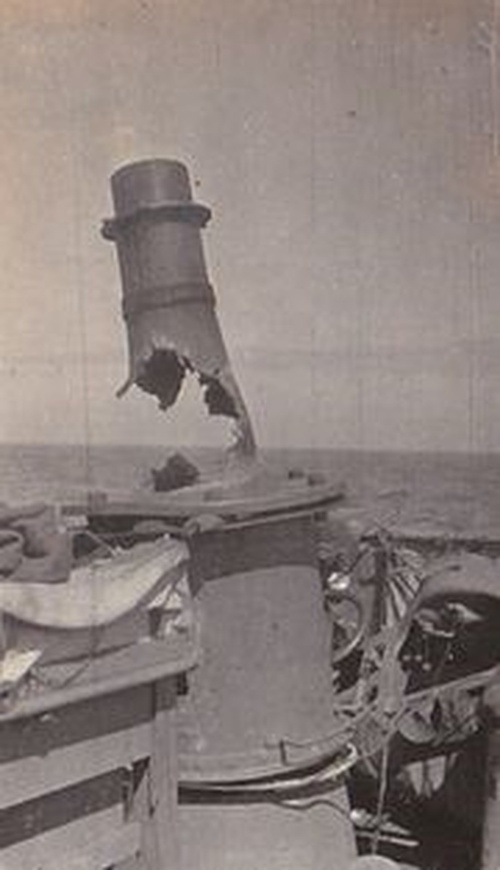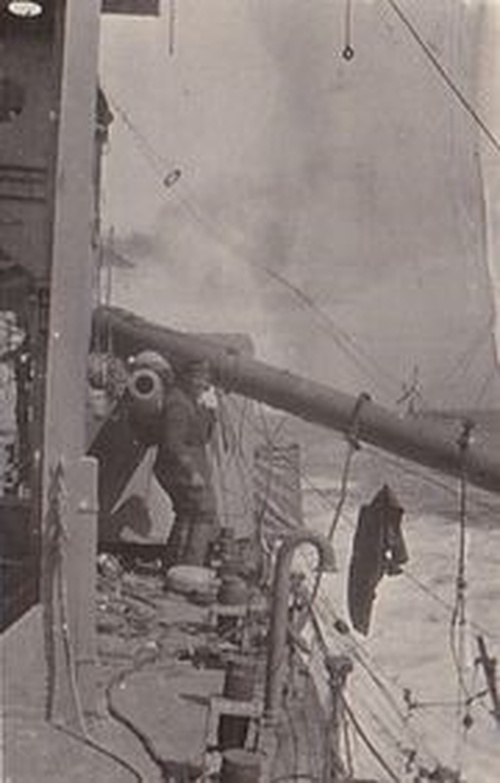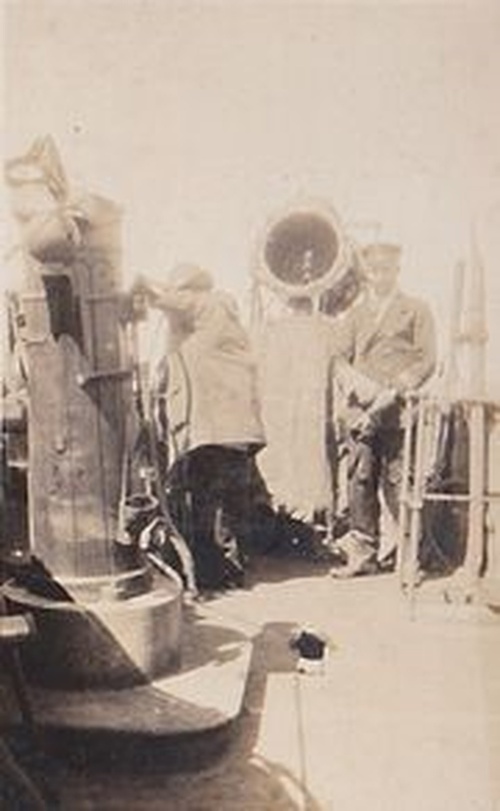Auction: 22003 - Orders, Decorations and Medals
Lot: 365
'When we could see and I had time to think it dawned on me what a terrible scene had been enacted. We thought of the "Honour" and "Glory", which so many people in their ignorance say is attached to warfare. You should have seen the decks of H.M.S. Broke at 4 a.m., June 1st 1916. There you would have seen an exhibition of the "Honour" and "Glory" in reality. Forty-eight of our crew lay dead and most of them shattered beyond recognition: another forty were wounded very badly. We were about five hours finding all of our dead chums, dragging them out of the wrecked messdeck and throwing their bodies over the side to be buried in the deep ocean. That was the "Honour" and "Glory" we had. It strikes you as being one gigantic murder. You wonder how men can have the audacity, for if we stopped to think what we were going to do we should never fight at all.'
A Great War campaign group of three awarded to Stoker 1st Class A. Pike, Royal Navy, who was present aboard H.M.S. Broke at the battle of Jutland
Caught close-range in the searchlights of the enemy battleship Westfalen, Broke was pulverised by heavy calibre fire with a resultant loss of more than 40% of her ship's company
1914-15 Star (299288 A. Pike, Sto. 1, R.N.); British War and Victory Medals (299288 A. Pike, Sto. 1, R.N.), very fine (3)
Allen Pike was born at Keyworth, Nottinghamshire on 25 March 1883 and joined the Royal Navy as a Stoker 2nd Class in December 1901. Advanced to Stoker 1st Class on in July 1906, he purchased his discharge in September 1908, when he joined the Royal Fleet Reserve.
Jutland
Recalled in August 1914, he joined the destroyer H.M.S. Broke in the same month and was subsequently present in her at the battle of Jutland. As neatly summarised in The Jutland Honours by Chris Bilham, Broke suffered shocking casualties and damage:
'At around 23:15 hrs ships were seen approaching from the starboard beam, i.e. the west, on a converging course. When they were only 600 yards away Tipperary, the flotilla leader, challenged them. The reply was a storm of gunfire, leaving Tipperary a sinking, burning wreck. Broke and some of the other destroyers then attacked the ships - enemy light cruisers, closely followed by battleships - and a torpedo from one of them hit the light cruiser Elbing.
The destroyers resumed their course south but, only a few minutes later, encountered the battleship Westfalen. The Broke had just begun her torpedo attack when she was illuminated with searchlights and then subjected to heavy gunfire at close range. As one of her lieutenants put it, 'It was perfectly damnable having their light right in our faces (about four or five cables off) and being properly biffed.' Nearly all the gun crews were killed; among the casualties was the helmsman and as he fell, he pulled the wheel to one side and Broke rammed the Sparrowhawk at speed. One of Broke's officers went forward to inspect the damage and found a stranger, who turned out to be Sparrowhawk's Sub-Lieutenant who had been pitched on board by the force of the collision. Commander Allen sent the man back with a message to his C.O. that in view of the serious damage to Broke, the Sparrowhawk should prepare to take his crew on board; Lieutenant Commander Hopkins of the Sparrowhawk replied that it was a pity because he had just sent a message to Allen requesting him to take Sparrowhawk's crew! While the two ships were locked together in clouds of hissing steam from ruptured pipes, the Sparrowhawk was then rammed by the Contest as well. Fortunately, the Germans had moved on and the three destroyers were separated.
Broke then began an arduous passage back to the U.K. At 01:30 she was approached by enemy destroyers which fired a few shells at her, killing a few more men, then inexplicably made off. The weather became so bad that she had to turn towards the south-east, as to continue on her homewards course to the west would have risked the collapse of her bulkheads. She eventually made port on the evening of 3 June.
Broke's casualties were forty-seven killed, thirty-six wounded. This was more than 40% of her company and by far the heaviest of any of the destroyers, excepting those which were sunk.'
Subsequent career
Pike departed Broke in early June 1916 but returned to sea with an appointment in the battleship Glory, the flagship of Rear-Admiral Thomas Kemp of the British North Russia Squadron, in October 1917. Operating out of Archangel, Glory was charged with protecting supplies being delivered to the White Russians.
Kemp nonetheless maintained a working relationship with the local communist leadership and, in March 1918, he reached an agreement with the authorities in Murmansk to send ashore a party of Royal Marines to help defend the city from a Finnish attack.
Glory returned to the U.K. in September 1919 and Pike was demobilised in March 1919.
Subject to 20% VAT on Buyer’s Premium. For more information please view Terms and Conditions for Buyers.
Sold for
£120
Starting price
£110

